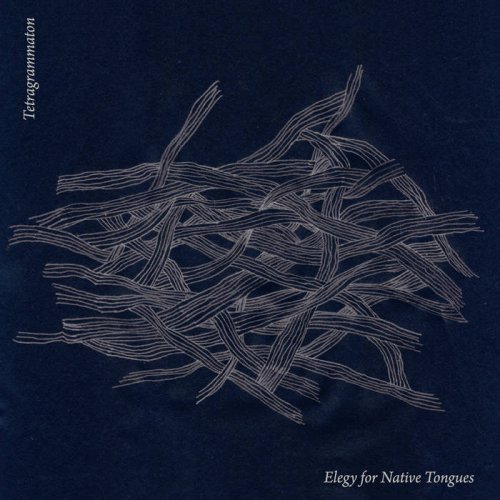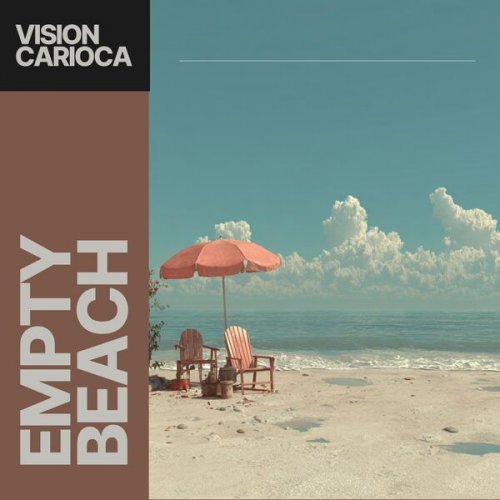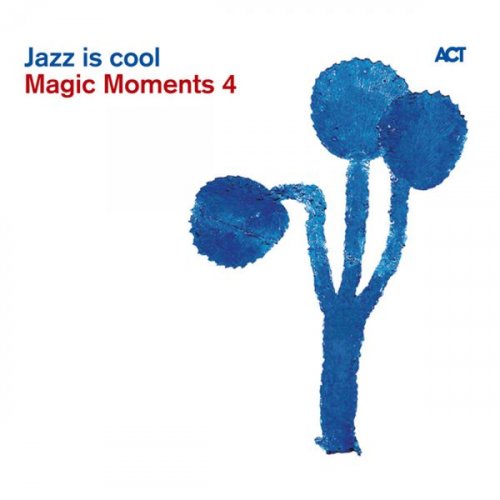Tetragrammaton - Elegy For Native Tongues (2008)

Artist: Tetragrammaton
Title: Elegy For Native Tongues
Year Of Release: 2008
Label: Subvalent
Genre: Free Improvisation, Free Jazz, Noise
Quality: FLAC (tracks+.cue, log, Artwork)
Total Time: 01:47:52
Total Size: 660.6 MB
WebSite: Album Preview
Tracklist:Title: Elegy For Native Tongues
Year Of Release: 2008
Label: Subvalent
Genre: Free Improvisation, Free Jazz, Noise
Quality: FLAC (tracks+.cue, log, Artwork)
Total Time: 01:47:52
Total Size: 660.6 MB
WebSite: Album Preview
CD1:
01. The Ghosts Won't Starve But We Will Perish (18:03)
02. Elegy For Native Tongues (7:24)
03. Kohelet Revisited (17:48)
04. Queen Of The Ships (14:09)
05. Santa Sangre (9:36)
CD2:
01. Oresteia In One Part (14:20)
02. Solve Et Coagula (11:36)
03. Los Heraldos Negros (14:55)
“Heavy, ominous psychedelic free-improv from Tokyo, Japan. Tetragrammaton is a trio featuring Nobunaga Ken on drums and percussion, Cal Lyall on electronics and guitar, and TOMO on hurdy-gurdy, saxophone and electronics, and have in the past collaborated with members of Zeni Geva, Acid Mothers Temple, Taj Mahal Travellers, and Damo Suzuki from Can. On Elegy For Native Tongues, however, it’s just the main trio at work, displaying a love for high-volume improvised noise and far-out psychedelic jazz meanderings that is spread across two discs in this debut release.
The first disc features five tracks recorded in the studio, all lengthy freeform explorations that mix up druggy, laid back free jazz and blasting skronk with endlessly droning electronics and heavy clouded feedback, Hawkind-style space rock fx and pounding drums, shapeless distorted guitars and scrabbly hard rock riffs, shamanic howling, hurdy-gurdy, and other sounds that all build into dense tangles of otherworldly drone and heavy free-jazz clatter. On tracks like “The Ghosts Won’t Starve But We Will Perish”, the drumming sticks with more traditional jazz rhythms that are augmeneted by weird skittery percussive sounds, and the horns streak dark shadows across a subtle dronescape before the sax begins to wail out twisted Middle Eastern flavored melodies. In contrast, the title track blends together energetic improv drumming and meandering guitar with blasts of Brotzmann-esque sax wipeout and scathing electronic noise. Tetragrammaton create some truly massive drones throughout their jams, but the sax always seems to take the lead, making this sound like Sunroof or Hototogisu gone free jazz, thick waves of feedback and rumbling ambience swirling around the room in ever-increasing volume and mass while the sax bleats and screams and murmurs through the mix.
The second disc is a live set recorded in Tokyo in 2007, and the three tracks that are included here are just as loud and dense as the studio stuff, if not louder. The second track in particular is a real crusher – “Solve et Coagula” slowly builds into earth-shaking Skullflower-like dronerock, mutant acid guitar lashing against a massive churning metallic drone, the free-jazz drumming all but obliterated by the maelstrom of electronics and feedback.
Nice. Dark, heavy speaker-shaking improv that when it really kicks in with full gale force turns into something akin to Skullflower and Hototogisu mixed together with the crushing free-jazz of Borbetomagus and the jet-black psychedelia of Fushitsusha – anyone that dug that new Borbetomagus A Go Go disc that we featured on our last C-Blast new arrivals list should especially check this out.” - Crucial Blast Records
Tetragrammaton is the quadriliteral name for God. It is also the name of the Japanese band behind Elegy for Native Tongues, a sprawling two-disc psychedelic/noise/free-jazz album. The band is part of the same musical universe as Acid Mothers Temple and Borbetomagus. Although this ambitious outing doesn’t offer as wide a spectrum of psychedelic textures as AMT touchstone Absolutely Freak Out (Zap Your Mind!!) or as unhinged a force as Snuff Jazz, band members Nobunaga Ken, Cal Lyall, and TOMO do form an exciting ensemble involving drums, electronics, guitar, hurdy-gurdy, and saxophone.
As with almost all music of this sort, the listener only fully appreciates the craft of the songs through extended and repeated attention. The chanting sweet spot on “The Ghosts Won’t Starve But We Will Perish” kicks in only after the tenth minute, which is the same point at which tinny distortion gives way to a barely-there oscillating melody in “Kohelet Revisited”. Such hidden pleasures are buried everywhere throughout disc one (the studio recordings) and disc two (a 2007 live set). This is a breathtaking listen. Just don’t expect any hooks.
The first disc features five tracks recorded in the studio, all lengthy freeform explorations that mix up druggy, laid back free jazz and blasting skronk with endlessly droning electronics and heavy clouded feedback, Hawkind-style space rock fx and pounding drums, shapeless distorted guitars and scrabbly hard rock riffs, shamanic howling, hurdy-gurdy, and other sounds that all build into dense tangles of otherworldly drone and heavy free-jazz clatter. On tracks like “The Ghosts Won’t Starve But We Will Perish”, the drumming sticks with more traditional jazz rhythms that are augmeneted by weird skittery percussive sounds, and the horns streak dark shadows across a subtle dronescape before the sax begins to wail out twisted Middle Eastern flavored melodies. In contrast, the title track blends together energetic improv drumming and meandering guitar with blasts of Brotzmann-esque sax wipeout and scathing electronic noise. Tetragrammaton create some truly massive drones throughout their jams, but the sax always seems to take the lead, making this sound like Sunroof or Hototogisu gone free jazz, thick waves of feedback and rumbling ambience swirling around the room in ever-increasing volume and mass while the sax bleats and screams and murmurs through the mix.
The second disc is a live set recorded in Tokyo in 2007, and the three tracks that are included here are just as loud and dense as the studio stuff, if not louder. The second track in particular is a real crusher – “Solve et Coagula” slowly builds into earth-shaking Skullflower-like dronerock, mutant acid guitar lashing against a massive churning metallic drone, the free-jazz drumming all but obliterated by the maelstrom of electronics and feedback.
Nice. Dark, heavy speaker-shaking improv that when it really kicks in with full gale force turns into something akin to Skullflower and Hototogisu mixed together with the crushing free-jazz of Borbetomagus and the jet-black psychedelia of Fushitsusha – anyone that dug that new Borbetomagus A Go Go disc that we featured on our last C-Blast new arrivals list should especially check this out.” - Crucial Blast Records
Tetragrammaton is the quadriliteral name for God. It is also the name of the Japanese band behind Elegy for Native Tongues, a sprawling two-disc psychedelic/noise/free-jazz album. The band is part of the same musical universe as Acid Mothers Temple and Borbetomagus. Although this ambitious outing doesn’t offer as wide a spectrum of psychedelic textures as AMT touchstone Absolutely Freak Out (Zap Your Mind!!) or as unhinged a force as Snuff Jazz, band members Nobunaga Ken, Cal Lyall, and TOMO do form an exciting ensemble involving drums, electronics, guitar, hurdy-gurdy, and saxophone.
As with almost all music of this sort, the listener only fully appreciates the craft of the songs through extended and repeated attention. The chanting sweet spot on “The Ghosts Won’t Starve But We Will Perish” kicks in only after the tenth minute, which is the same point at which tinny distortion gives way to a barely-there oscillating melody in “Kohelet Revisited”. Such hidden pleasures are buried everywhere throughout disc one (the studio recordings) and disc two (a 2007 live set). This is a breathtaking listen. Just don’t expect any hooks.

![Lisanne Lyons - May I Come In (2026) [Hi-Res] Lisanne Lyons - May I Come In (2026) [Hi-Res]](https://www.dibpic.com/uploads/posts/2026-02/1771506063_vqohcely45tnt_600.jpg)
![WILLOW - petal rock black (2026) [Hi-Res] WILLOW - petal rock black (2026) [Hi-Res]](https://www.dibpic.com/uploads/posts/2026-02/1771525134_cover.jpg)


![Art Pepper - Everything Happens To Me: 1959 - Live At The Cellar (2026) [Hi-Res] Art Pepper - Everything Happens To Me: 1959 - Live At The Cellar (2026) [Hi-Res]](https://www.dibpic.com/uploads/posts/2026-02/1771405170_fcwg7jmt6mou1_600.jpg)
![Susie Philipsen - Sunday Kissing Club (2026) [Hi-Res] Susie Philipsen - Sunday Kissing Club (2026) [Hi-Res]](https://www.dibpic.com/uploads/posts/2026-02/1771738386_500x500.jpg)
![The Three Seas - Antaḥkaraṇa (2026) [Hi-Res] The Three Seas - Antaḥkaraṇa (2026) [Hi-Res]](https://img.israbox.com/img/2026-02/19/uhghtg21m4gkq8nt8lyl1f5dq.jpg)
![Meinild/Anderskov/Tom - Spectral Entanglements (2023) [Hi-Res] Meinild/Anderskov/Tom - Spectral Entanglements (2023) [Hi-Res]](https://www.dibpic.com/uploads/posts/2026-02/1771491474_hl116k2q9n24a_600.jpg)